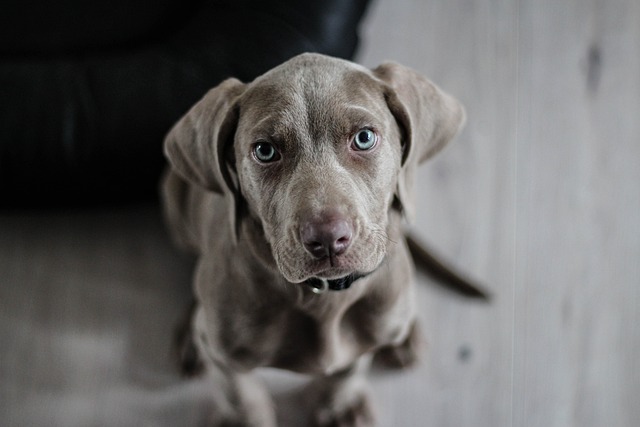
How can I tell if my dog's heatstroke is serious
Let’s be real: It’s a sticky August morning in Los Angeles, and you took your 2-year-old Golden Retriever, Max, for a walk a little later than usual
You’re trying to enjoy a peaceful at home when your dog suddenly growls and snaps at a family member reaching for a treat. Moments like these leave you feeling helpless and wondering, “What can I give my dog for aggressive behavior?” Aggression in dogs can be a concerning issue, but there are several effective approaches you can take to help your furry friend become more well - behaved.
Aggressive behavior in dogs doesn’t occur without cause. Biologically, it’s often a survival mechanism. When a dog feels threatened, whether it’s due to a past traumatic experience or a perceived danger in the present, its fight - or - flight response kicks in, sometimes resulting in aggression. Resource guarding, where a dog protects its food, toys, or territory, is another common trigger. Hormonal imbalances can also play a role, especially in intact male or female dogs. Understanding these underlying factors is crucial for addressing the problem effectively.
One of the most effective “gifts” you can give your dog is a structured training routine based on positive reinforcement. Start by rewarding calm behavior. For example, if your dog usually growls when you approach its food bowl, slowly get closer while it’s eating and offer praise and a small, delicious treat when it remains relaxed. Over time, your dog will learn that your presence isn’t a threat and that good behavior leads to rewards. Puzzle toys are another great option. They keep your dog’s mind occupied, reducing boredom - related aggression. Toys that dispense treats as your dog figures out how to manipulate them can be especially engaging.

In some cases, natural supplements may help ease a dog’s aggressive tendencies. Chamomile and L - tryptophan supplements, available at many pet stores, can have a calming effect. However, always consult your veterinarian before giving any supplements to your dog. Your vet can determine the appropriate dosage based on your dog’s size, age, and overall health. They may also recommend other options, such as pheromone diffusers. These devices release synthetic versions of the pheromones that mother dogs produce to soothe their puppies. Placing a pheromone diffuser in your dog’s living area can create a more relaxed environment, reducing stress - induced aggression.
If your dog’s aggression is severe, professional help is essential. Enroll your dog in an aggression - specific training class led by a certified dog trainer. These trainers use proven techniques to modify your dog’s behavior. In more serious cases, a veterinary behaviorist may prescribe medication. Anti - anxiety medications can sometimes help reduce the fear or stress that’s fueling the aggression, but this should always be a last resort and under strict veterinary supervision.
In the context of pet ownership in the US and Europe, there are important considerations. Legally, keeping your dog’s vaccinations up - to - date, especially rabies, is required by law in most areas. When out in public, always follow leash laws, especially if your dog has aggressive tendencies. Failing to control your dog can result in fines or legal issues. In an apartment, it’s crucial to manage your dog’s behavior to avoid disturbing neighbors. Remember, physical punishment is never an option. It not only goes against animal welfare principles but can also make the aggression worse. Instead, focus on positive interactions and training.
In conclusion, helping a dog with aggressive behavior involves a combination of training, appropriate products, and sometimes professional intervention. By understanding the root causes, using positive methods, and adhering to local laws and ethical standards, you can make a significant difference in your dog’s behavior and create a happier, safer environment for everyone.

Let’s be real: It’s a sticky August morning in Los Angeles, and you took your 2-year-old Golden Retriever, Max, for a walk a little later than usual

You're enjoying a summer afternoon at the park when you notice your dog has stopped panting and appears disoriented - their gums are bright red

Let’s paint the picture: You’re in your Denver apartment, watching your 4-year-old Boston Terrier, Ruby, plop down mid-play session with her favorite toy

Many dog owners notice their pets nails seem shorter after regular walks,but how much does this daily activity actually help?The answer depends on where you walk—concrete sidewalks or asphalt streets gently file nails as a dog's paws hit the ground

Most dog owners notice their pup scooting across the carpet at some point, but few connect it to impacted anal glands. These small sacs near a dog’s rectum secrete a scent for marking territory

Most vets agree that regular dog teeth cleaning is key to avoiding painful dental issues later. For healthy adult dogs, a professional cleaning at the vet’s office every 12 to 18 months usually works well.